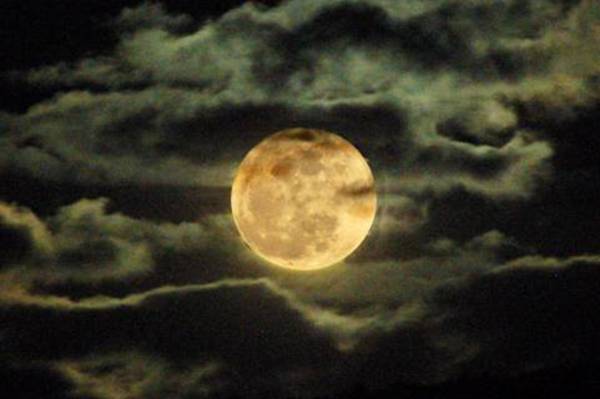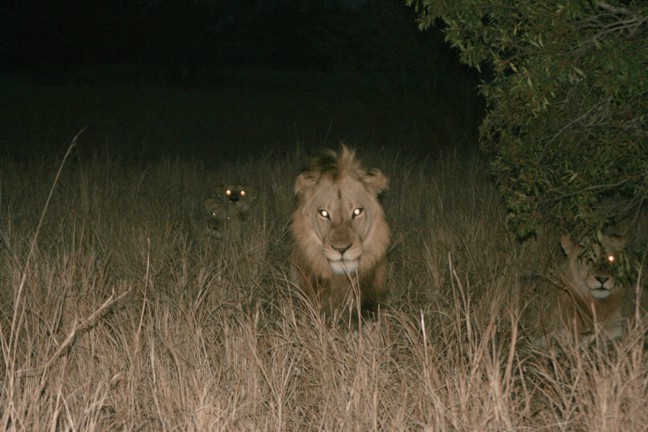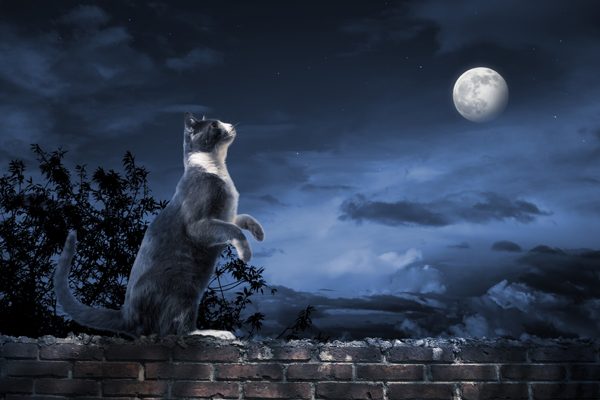
Are you afraid of the dark? Blame it on the Moon!
Have you tried to overcome your fear of the dark with logic and reason but you still have a nagging voice that sparks your heart to race and your mouth to go dry when things go bump in the night? Are you afraid of the dark?
Does your feeling of restlessness increase with the onset of the full moon? If so, it probably doesn’t help that the words lunatic and lunacy have their origins in the word lunar. Throughout human history, people around the world have been bewitched by the moon. Myths about the moon persist to this day even though the science doesn’t back up the claims. The belief that werewolves change into their canine incarnations when the moon is full certainly adds to the myth and I bet you will find folks that swear the full moon leads to more aggressive behavior and crime.

Fear of the Dark likely part of human evolution
Tonight, we will experience a full moon. So I thought this would be a great time to look into why so many of us are afraid of the dark or are skittish when the moon hangs full and bright in the night sky.
Your fear is likely a part of human evolution called an adaptation. That’s right, you might not be able to help it that you shiver and get the goosebumps when day turns into night and the moon begins to wane. According to an interesting research article, Fear of Darkness, the Full Moon and the Nocturnal Ecology of African Lions,* nocturnal carnivores have played a part in human evolution, motivating the need for night-time shelter, for fire and our instinctive fear of darkness.
African lions are sensitive to moonlight when hunting
The article discusses the predatory behavior across the lunar cycle on the largest data-set of lion attacks ever compiled and found that African lions are sensitive to moonlight when hunting. The study found that lions are most dangerous to humans when the moon is waning and/or below the horizon not when the moon is full.

Lions have more difficulty hunting under a full moon
Attacks by predators that will resort to eating humans commonly occur at night and nocturnal species usually alter their behavior with the phases of the moon. When the moon is full and bright in the nighttime sky, lions and perhaps all carnivores, have a tougher time of a successful hunt. The light of the moon makes it much harder for the lions to remain in stealth mode when stalking their next meal. When the moon begins to wane, the lions are super hungry and will then resort to taking down the easiest prey. Most humans are active between sunset and 10:00 pm and in the first weeks following the full moon, when the moon rises at least an hour after sunset, this darkness gives the lions better odds of taking down their prey.
When the moon wanes, Lions are hungry
Humans have always been exposed to the risks of predation that coincided with the phases of the moon. Although most of us are safe from lion attacks in our own habitats, the long history of seeking shelter from night time predators has left its impression in our psyche. This is why the myths and mystery around the full moon persist to this day. I really liked this quote from the Packer, et al. article:
“Thus the full moon is not dangerous in itself, but is instead a portent of the darkness to come”*
Isn’t that a good quote? “A portent of the darkness to come”, that really makes me shiver a bit. Does it you?

So forgive yourself if you are a bit of a scaredy cat when the darkness of night falls, because odds are you just can’t help it! Now that you might have a better understanding of why you have fear of the dark, I hope it puts you more at ease.
*Packer C, Swanson A, Ikanda D, Kushnir H (2011) Fear of Darkness, the Full Moon and the Nocturnal Ecology of African Lions. PLoS ONE 6(7): e22285. doi:10.1371/journal.pone.0022285